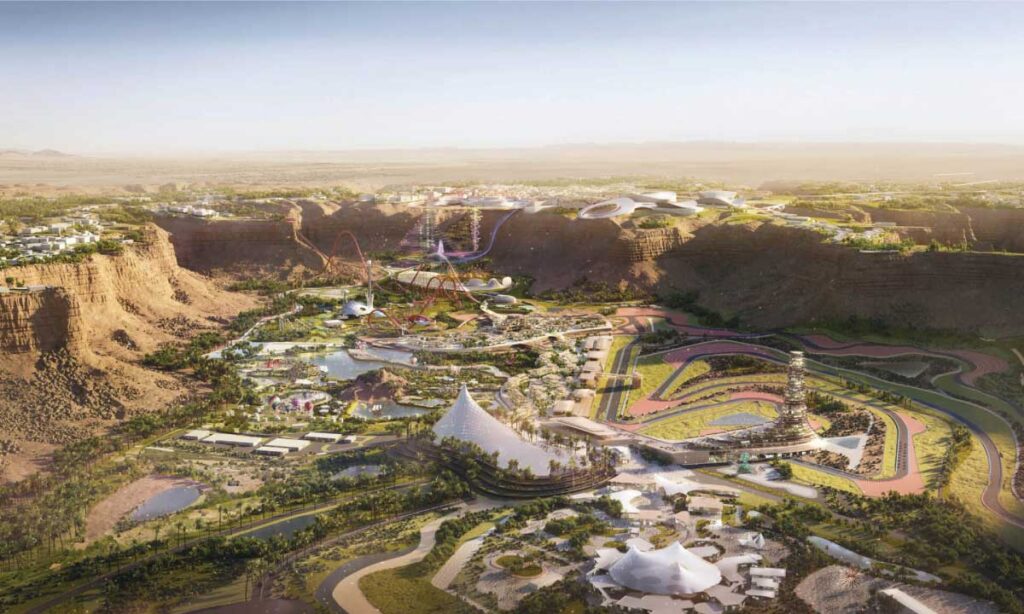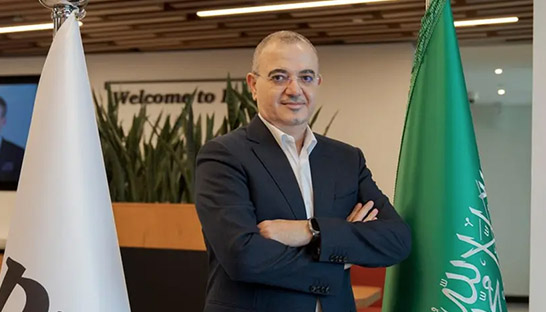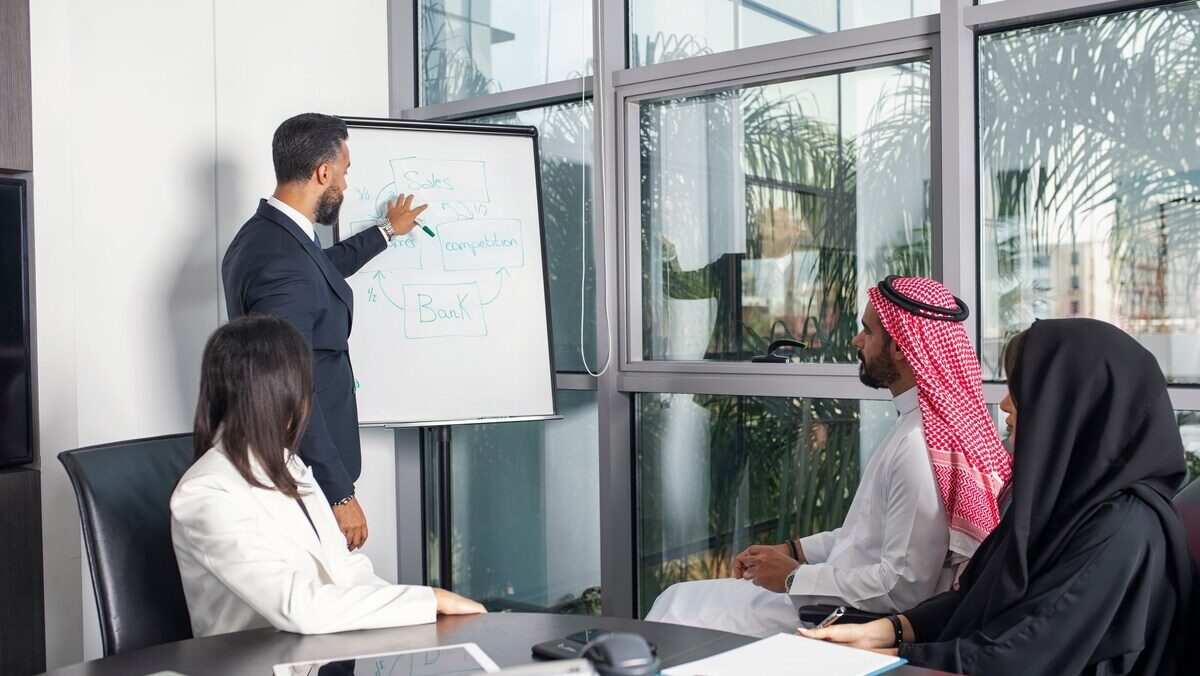Local Roots, Global Vision
In recent years, Saudi Arabia has been witnessing a quiet yet powerful transformation, one that is rooted in the soil of local innovation but reaching far beyond its borders. Sustainability, once a corporate buzzword, is now deeply intertwined with the Kingdom’s national identity. From the desert to the coast, Saudi businesses are not just embracing environmental consciousness, they are redefining it with cultural authenticity, innovation, and purpose.
As part of Vision 2030, the Kingdom’s ambitious national blueprint, sustainability is no longer confined to environmental preservation. It now encompasses economic diversification, community empowerment, and social well-being. This broader understanding of sustainability has inspired a new generation of Saudi entrepreneurs and corporations to balance profitability with purpose.
Local businesses, both established giants and rising startups, are recognizing that their impact can be transformative when rooted in Saudi values and traditions. They are turning local resources into national strengths, proving that sustainability is not an imported concept but an inherent part of the country’s progress.
A New Era of Corporate Responsibility
Saudi Arabia’s private sector is playing a central role in advancing sustainability. Companies are aligning their operations with environmental goals, reducing carbon footprints, and investing in renewable energy. But what makes the Saudi approach unique is its local grounding.
Rather than simply adopting international standards, Saudi businesses are shaping their own models of sustainability, models that respect the environment while honoring cultural heritage. For example, construction firms are reimagining architecture using traditional materials that naturally regulate temperature, reducing the need for energy-heavy cooling systems. Similarly, agricultural enterprises are integrating centuries-old water conservation techniques with modern technology to combat arid conditions.
What was once seen as a challenge, the Kingdom’s vast deserts and limited freshwater, is now viewed as an opportunity for innovation. These businesses are demonstrating that sustainability is not just about compliance but about creativity.
Small Businesses, Big Changes
While multinational corporations often dominate the conversation around sustainability, many of the most impactful initiatives in Saudi Arabia are emerging from local small and medium-sized enterprises. These businesses are close to their communities and deeply aware of the environmental realities around them.
From organic farms in Al Qassim to eco-conscious fashion labels in Jeddah, local entrepreneurs are weaving sustainability into every layer of their business. They are reusing materials, reducing waste, and inspiring consumers to rethink how they live and shop.
The growing popularity of locally produced, sustainable goods has created a cultural shift. Saudis are increasingly choosing brands that reflect their values, those that protect the environment, uplift communities, and promote ethical practices. In doing so, consumers are helping build a circular economy where sustainability is both a responsibility and a shared identity.

The Power of Innovation and Technology
Technology is another key driver of Saudi Arabia’s sustainability revolution. Digital platforms, AI, and data analytics are helping businesses optimize energy use, reduce waste, and enhance efficiency. Tech-driven startups are designing smart solutions for recycling, renewable energy, and sustainable logistics.
For example, renewable energy companies are using advanced analytics to monitor and optimize solar panel performance, ensuring maximum output with minimal maintenance. Waste management firms are developing apps that reward users for recycling, turning sustainability into an engaging, gamified experience.
Innovation in Saudi Arabia is not limited to high-tech industries. Even traditional sectors such as agriculture and manufacturing are adopting digital tools to enhance sustainability. Farmers are using sensors and drones to monitor crop health, while factories are integrating smart meters to track water and energy usage in real time.
This blend of technology and tradition reflects Saudi Arabia’s unique approach, one where progress is guided by both modern science and deep cultural wisdom.
Women Driving the Sustainability Movement
A remarkable feature of Saudi Arabia’s sustainability journey is the growing involvement of women. Female entrepreneurs, researchers, and executives are playing pivotal roles in designing eco-friendly products, leading environmental initiatives, and promoting green education.
Many Saudi women-led startups are focused on environmental impact, from sustainable beauty brands to eco-friendly packaging companies. Their leadership extends beyond business, influencing public perception and inspiring a generation of young women to pursue careers in sustainability.
In schools and universities, environmental programs led by women are instilling awareness about conservation and responsible consumption. These initiatives are shaping not just a new business landscape but a new social mindset, one that values balance, care, and shared responsibility.
By empowering women to lead in sustainability, Saudi Arabia is reinforcing one of Vision 2030’s key goals, unlocking the full potential of every citizen to contribute to national growth.
Redefining Energy for a Greener Tomorrow
Energy is at the heart of Saudi Arabia’s economy and its transition toward sustainability. The Kingdom’s leadership has made it clear that while oil remains a key asset, the future will be powered by renewables.
Local energy companies are investing heavily in solar, wind, and hydrogen projects that reflect the country’s vast natural potential. These initiatives are not only reducing emissions but also creating jobs and attracting international investment.
But the transformation is not only about large-scale projects. Across the country, businesses and households are installing solar panels, switching to LED lighting, and exploring electric mobility. This growing awareness shows that sustainability has moved from the boardroom to the everyday lives of Saudis.
By redefining energy use, Saudi businesses are proving that economic strength and environmental care can go hand in hand.
Sustainability Through Heritage and Culture
One of the most beautiful aspects of Saudi Arabia’s sustainability movement is how deeply it connects with heritage. Long before modern technology, Saudi communities lived in harmony with the environment, practicing conservation as a way of life. Today, that heritage is being revived in new and creative ways.
Architects are designing eco-friendly buildings inspired by ancient Najdi and Hijazi styles, using natural ventilation and locally sourced materials. Culinary startups are promoting traditional diets rich in local ingredients, reducing dependence on imported goods. Artisans are reviving handcraft traditions that use sustainable materials, preserving both culture and the planet.
This return to heritage is not nostalgic, it’s strategic. By grounding sustainability in cultural identity, Saudi businesses are ensuring that environmental responsibility feels authentic, not imposed.

Education and Youth: Building a Sustainable Mindset
The future of Saudi sustainability lies in the hands of its youth. Across schools, universities, and community programs, young Saudis are learning that their choices today shape tomorrow’s environment.
Business incubators and innovation hubs are encouraging students to develop green startups. Environmental competitions, recycling drives, and awareness campaigns are nurturing a sense of purpose among young people.
Saudi universities are integrating sustainability into their curricula, preparing a generation of engineers, entrepreneurs, and policymakers who will lead the next wave of transformation.
This focus on youth education is essential because sustainability is not just a project, it’s a culture. It grows when people believe in it, practice it, and pass it on.
Green Architecture and Urban Development
As cities expand and new urban projects rise across Saudi Arabia, sustainability is being built into their very foundations. Projects like NEOM and The Line are global examples of how urban development can coexist with environmental preservation.
But beyond these mega projects, local developers are also adopting green standards. They are designing energy-efficient homes, using recycled materials, and introducing urban greenery to reduce heat and improve air quality.
Real estate companies are realizing that eco-friendly designs not only protect the environment but also attract investors and residents who value healthy, sustainable living.
The Kingdom’s evolving skyline is a reflection of its evolving priorities, growth that does not come at the expense of nature.
Partnerships for a Sustainable Economy
Collaboration lies at the core of Saudi Arabia’s sustainability success. Government agencies, private companies, and community organizations are joining forces to achieve shared goals.
Public-private partnerships are funding renewable energy projects, waste management systems, and water conservation programs. Local businesses are teaming up with universities to research green technologies, while NGOs are spreading awareness about responsible consumption.
These partnerships demonstrate that sustainability is a shared journey. Every actor, from the smallest entrepreneur to the largest corporation, plays a role in shaping the Kingdom’s future.
The Economic Dimension of Sustainability
Beyond environmental benefits, sustainability in Saudi Arabia is driving real economic growth. Green industries are creating new job opportunities, attracting investment, and diversifying the economy away from oil dependency.
Sustainable tourism is one such rising sector, showcasing the Kingdom’s natural beauty while preserving its ecosystems. Eco resorts, cultural trails, and heritage villages are inviting visitors to experience Saudi Arabia’s authenticity responsibly.
Meanwhile, the growing demand for sustainable products is fueling innovation in manufacturing, design, and logistics. Entrepreneurs are finding that sustainability is not just a moral choice, it’s a profitable one.
This shift toward a sustainable economy reinforces Saudi Arabia’s vision of long-term prosperity built on balance, innovation, and inclusivity.
Challenges on the Path to Green Growth
Despite remarkable progress, the journey toward sustainability is not without challenges. Transitioning to renewable energy, reducing waste, and changing consumption habits require time, resources, and commitment.
Many small businesses struggle with the initial costs of green technology or limited access to sustainable materials. However, as awareness grows and government incentives increase, these challenges are gradually being overcome.
The key lies in collaboration, when communities, industries, and authorities work together, sustainable change becomes not only achievable but unstoppable.
A Nation Inspired by Its People
At the heart of Saudi Arabia’s sustainability movement are its people, the farmers preserving desert ecosystems, the engineers building clean technologies, the artists spreading awareness, and the youth dreaming of a greener tomorrow.
Their collective effort is transforming the national narrative from one of consumption to conservation, from reliance to resilience. It is proof that real change begins locally, with passion, purpose, and pride.
As the Kingdom continues to grow, its sustainable vision stands as a model for the region and beyond. Saudi Arabia is showing the world that progress need not come at the planet’s expense, that a nation can thrive while nurturing the land that sustains it.
The Road Ahead: Sustaining the Future
The path forward is clear. Saudi Arabia’s businesses will continue to innovate, inspire, and invest in a sustainable future. The foundations have been laid through education, technology, cultural revival, and corporate responsibility.
The future will be powered by renewable energy, designed by creative minds, and led by communities that care deeply about their environment.
As the world looks toward Saudi Arabia, it sees a nation not only rich in natural resources but rich in determination, a country proving that sustainability is not a destination but a journey built on unity, wisdom, and hope.
Do follow Gulf Magazine on Instagram.
Also Read – Saudi Arabia Unveils Dynamic 2025-26 Academic Calendar with Exciting Changes



